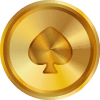독일 도박 조약에 대한 ECJ의 첫 구두 심리가 많은 사람들의 기대를 모았습니다.
참조 번호 C-440으로 등록되고 "가짜 소송"으로도 알려진 이 법적 분쟁은 독일에서 몰타를 거쳐 ECJ로 넘어갔습니다.
원래 소송의 주제는 독일에서 독일 면허 없이 운영되는 2차 복권 판매업체를 상대로 한 플레이어의 독일 내 소송이었습니다. 플레이어의 소송은 이후 합의의 일환으로 피고 측이 소송에 참여시킨 독일 변호사에 의해 인수되었습니다. 이후 변호사는 몰타 법원에서 자신의 이름으로 인수된 소송을 다시 제기했습니다.
이후 당사자들은 ECJ에 소송을 제기하기로 합의했으며, ECJ는 2012년 독일 도박 조약의 유럽법 준수 여부에 대한 의견을 제시해야 했습니다. 온라인 도박 서비스 제공업체인 로토란트(Lottoland)는 ECJ 심리에서 카르펜슈타인 변호사의 변호를 받았습니다.
▶️ 원고, 변호사인 폴커 람게, 피고, 연방 정부, 몰타 대표, 벨기에 대표, 유럽 위원회와의 3시간 이상의 협상과 심리 끝에, 위원장과 법무장관은 관련된 모든 당사자에게 여러 질문을 했습니다.
독일연방공화국이 소송에 관여하지 않고도 몰타 법원이 GlüStV 2012의 적합성에 대해 판결을 내릴 수 있는지에 대한 의문이 반복적으로 제기되었습니다.
위원회는 이러한 사례는 최대한 신중하게 처리해야 한다고 반복해서 지적해 왔습니다.
재판장이 원고에게 사업 모델이 무엇이며, 몰타에서 재소송을 제기하기 위해 독일 선수의 소송을 인수한 이유를 묻자, 원고는 소비자 보호 분야에서 일하며 독일 선수들에게 법적 안정성을 제공하고자 했다고 설명했습니다. 법원이 원고가 대표하는 소비자의 수를 추가로 묻자, 원고는 다음과 같이 답했습니다.
"10 미만"
위원장과 의장의 발언은 ECJ의 결정 결과에 대한 어떠한 징후도 제공하지 않았습니다.
▶️ 어떠한 경우에도 법무장관은 2025년 7월 10일에 의견을 발표할 것입니다.
그때까지 ECJ는 GlüStV 2012에 대한 결정을 내리지 않을 것입니다.
원천
이스트반 코크론
The first oral hearing of the ECJ on the German State Treaty on Gambling was eagerly awaited.
The legal dispute, which is registered under the reference number C-440 and is also known as the "FAKE proceedings," has made its way from Germany via Malta to the ECJ.
The original subject of the proceedings was a player's claim in Germany against a provider of secondary lotteries operating in Germany without a German license. The player's claims were subsequently purchased by a German lawyer brought into the proceedings by the defendant as part of a settlement. The lawyer then re-asserted the acquired claims in his own name in court in Malta.
The parties then agreed to submit a case to the ECJ, for which the ECJ would have to comment on the conformity of the German State Treaty on Gambling of 2012 with European law. The online gambling provider Lottoland was represented by attorney Karpenstein at the hearing before the ECJ.
▶️ After more than three hours of negotiations and hearings from the plaintiff, lawyer Volker Ramge, the defendant, the Federal Government, the representative from Malta, the representative from Belgium and the European Commission, both the chairman and the advocate general put a number of questions to all parties involved.
The question of whether Maltese courts can decide on the conformity of the GlüStV 2012 without the Federal Republic of Germany being involved in the proceedings was repeatedly raised.
The Commission has repeatedly pointed out that such cases must be handled with the utmost care.
When the presiding judge asked the plaintiff what his business model was and why he had purchased a claim from a German player in order to re-file the claim in Malta, the plaintiff explained that he worked in consumer protection and wanted to create legal certainty for players in Germany. When the court further inquired how many consumers the plaintiff represented, the plaintiff replied:
"less than ten"
The statements made by the Chairman and the President did not provide any indication of the outcome of the ECJ’s decision.
▶️ In any case, the Advocate General will deliver his Opinion on 10 July 2025.
Until then, there will be no decision by the ECJ on the GlüStV 2012
source
Istvan Cocron
Mit großer Spannung wurde die erste mündliche Verhandlung des EuGH zum deutschen Glücksspielstaatsvertrag erwartet.
Der unter dem Aktenzeichen C-440 geführte und auch als „FAKE-Verfahren" bekannte Rechtstreit hat es von Deutschland über Malta bis zum EugH geschafft.
Gegenstand des Verfahrens war ursprüglich eine Spielerklage in Deutschland gegen einen in Deutschland ohne deutsche Lizenz tätigen Anbieter von Zweitlotterien. Die Ansprüche des Spielers wurden dann im Rahmen eines Vergleichs zur Beendigung von einem von der Beklagten in das Verfahren eingebrachten Rechtsanwalt aus Deutschland abgekauft. Der Rechtsanwalt machte sodann die erworbenen Ansprüche im eigenen Namen nochmals in Malta gerichtlich geltend.
Sodann wurde zwischen den dortigen Parteien übereinstimmend eine EugH-Vorlage angestrebt, damit der EugH zur Europarechtskonformität des deutschen Glücksspielstaatsvertrags 2012 Stellung nehmen muss. Der Online-Glücksspielanbieter Lottoland wurde in der mündlichen Verhandlung vor dem EugH von Rechtsanwalt Karpenstein vertreten.
▶️ Nach mehr als drei Stunden Verhandlung und Anhörung des Klägers, Rechtsanwalt Volker Ramge, der Beklagten, der Bundesregierung, des Vertreters aus Malta, des Vertreters aus Belgien und der Europäischen Kommission, stellten sowohl der Vorsitzende, als auch der Generanwalt eine Reihe von Rückfragen an alle Beteiligten.
Es wurde dabei immer wieder thematisiert, ob Maltesische Gerichte über die Konformität des GlüStV 2012 befinden können, ohne dass die Bundesrepublik dem Verfahren beigezogen wird.
Die Kommission wies mehrfach darauf hin, dass solche Fallkonstellationen mit äußerster Sorgfalt zu behandeln sind.
Auf die Frage des Vorsitzenden an den Kläger, was dessen Geschäftsmodell sei, und warum er einen Anspruch eines Spielers aus Deutschland abgekauft hätte, um diesen Anspruch nochmal in Malta einzuklagen, erklärte der Kläger, er sei im Verbraucherdchutz tätig und wolle Rechtssicherheit für die Spieler in Deutschland schaffen. Auf die weitere Rückfrage des Gerichts, wie viele Verbraucher der Kläger denn anwaltlich vertreten würde, antwortete der Kläger;
„weniger als zehn"
Eine Tendenz, wie die Entscheidung des EuGH ausfallen werde, lies sich den Ausführungen des Vorsitzenden und der Präsidentin nicht entnehmen.
▶️ Der Generalanwalt wird jedenfalls am 10.07.2025 seine Schlussanträge stellen.
Bis dahin wird es erstmal keine Entscheidung des EugH zum GlüStV 2012 geben
Quelle
Istvan Cocron
자동 번역:













